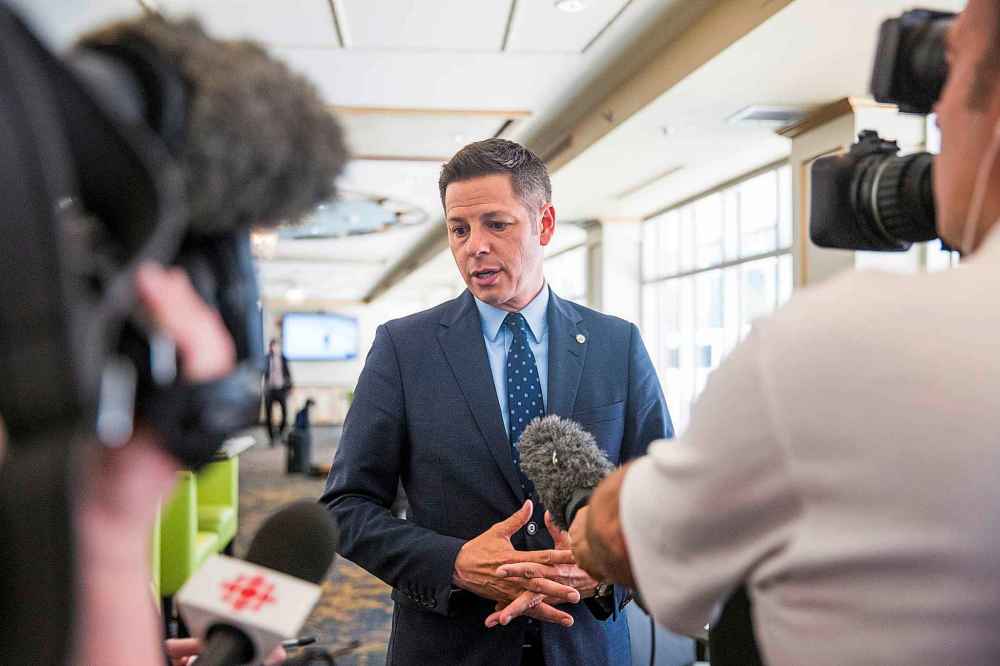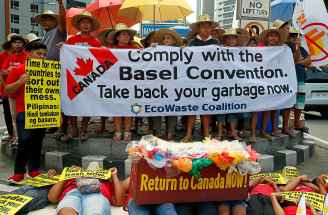Treasury Board Secretariat report slams city hall’s ‘broken culture’
Read this article for free:
or
Already have an account? Log in here »
To continue reading, please subscribe:
Monthly Digital Subscription
$0 for the first 4 weeks*
- Enjoy unlimited reading on winnipegfreepress.com
- Read the E-Edition, our digital replica newspaper
- Access News Break, our award-winning app
- Play interactive puzzles
*No charge for 4 weeks then price increases to the regular rate of $19.00 plus GST every four weeks. Offer available to new and qualified returning subscribers only. Cancel any time.
Monthly Digital Subscription
$4.75/week*
- Enjoy unlimited reading on winnipegfreepress.com
- Read the E-Edition, our digital replica newspaper
- Access News Break, our award-winning app
- Play interactive puzzles
*Billed as $19 plus GST every four weeks. Cancel any time.
To continue reading, please subscribe:
Add Free Press access to your Brandon Sun subscription for only an additional
$1 for the first 4 weeks*
*Your next subscription payment will increase by $1.00 and you will be charged $16.99 plus GST for four weeks. After four weeks, your payment will increase to $23.99 plus GST every four weeks.
Read unlimited articles for free today:
or
Already have an account? Log in here »
Hey there, time traveller!
This article was published 28/05/2019 (2385 days ago), so information in it may no longer be current.
A new report says the City of Winnipeg has a “broken culture” and system when it comes to planning, zoning and permitting, resulting in “significant anger and frustration” among users and a huge loss in development opportunity.
The 199-page document, compiled by bureaucrats within Manitoba’s Treasury Board Secretariat, tells of years of regulatory delays and perceived mistreatment of business applicants.

“We heard many individuals mention that the City of Winnipeg fails to view development through the lens of mutual benefit,” the report says.
It describes Winnipeg and other Manitoba jurisdictions as outliers that have not adopted “best practices” in planning and permitting. It estimates eliminating unnecessary permitting delays province-wide would add $17 million a day to the provincial gross domestic product; municipal tax revenues would increase at the rate of $400,000 per day.
Premier Brian Pallister, who commissioned the report six weeks ago, said the findings indicate the problem is greater than he had anticipated.
“My understanding is that there’s a high level of frustration among many people who would like to invest in Manitoba, most of them Manitobans, that they are not being served as well as might be the case,” he said Tuesday, after the report’s release.
Samples of anonymous statements from the more than 50 people interviewed for the report:
— “Everyone knows what is going on at the City (of Winnipeg), but people are afraid to speak up out of fear for retribution.”
— “You try to fight (inspectors), and they are vindictive.”
— “Everyone knows what is going on at the City (of Winnipeg), but people are afraid to speak up out of fear for retribution.”
— “You try to fight (inspectors), and they are vindictive.”
— “Winnipeg is only so big, and you will suffer if you even think of rocking the boat.”
— “Development is not viewed as a tool of economic development. Development is considered morally and ethically wrong.”
— “Culturally, planning across North America is moving in favour of densification. Winnipeg is bucking that trend.”
— “Rural municipalities ask, ‘What can we do to get you started?’ while the City (of Winnipeg) asks, ‘What obstacles can we throw in your way?'”
— “We have been trying to do business with the city for a long time. The economic development-friendliness has ebbed and flowed, but we are at an all-time low. This is worse than it was even under Glen Murray (mayor of Winnipeg, 1998-2004).”
More than 50 individuals were interviewed over several weeks, including developers, representatives of large corporations, former and current city officials, provincial public servants and others. None are named in the report, which relies greatly on anecdotal information.
The report says Winnipeg’s share of industrial and commercial development as a provincial percentage has been on a steady decline for the past two years.
Lost economic development opportunities in Winnipeg, as a result of current system problems, have included a distribution outlet and warehouse “for a leading global online retailer” and “server farms for a leading global internet company,” the document says.

Other lost opportunities include the development of the Parker lands, which has been at a standstill for years, and needed development at the site of the former football stadium at Polo Park, the report says.
“We have learned that there were concrete proposals to densify the former stadium site, which the City of Winnipeg refused to advance,” the report states, without citing the source of the information nor any other detail.
The secretariat’s review included the City of Winnipeg, rural municipalities, planning districts, Manitoba Hydro and the Office of the Fire Commissioner.
It says there is a lack of planning integration across the metro Winnipeg region. The lack of co-ordinated development creates overlapping and inconsistent facilities, a “skewing” of tax bases, unco-ordinated emergency services and the removal of valuable farmland from production.
Province’s slipshod report on municipal planning lacks balance, hard data: Dan Lett
The 200-page report is a triumph of unsubstantiated allegations and conclusions, an accomplishment aided in no small part by the fact it is completely liberated from the yoke of hard data or proven fact. Its assumptions are tenuous, at best. Its conclusions are based on little more than the allegations it received from the building and development community, which was thoroughly canvassed.
The report released Tuesday does not make any recommendations. Those will come later, provincial officials said, after the public has had a chance to consider the initial report’s findings.
Pallister defended not naming persons interviewed for the report, saying they may have feared repercussions if their identities were made public.
The process gave persons who deal with the planning, zoning and permitting process an opportunity to “vent,” he said. Now, government needs to take a look at whether “that venting is legitimate and if there’s something we can about it.”
Winnipeg Mayor Brian Bowman said he had requested an advance copy of the report but wasn’t provided one. He had left the city on a business trip before copies were made available.
Reaction to the report
”The premier promised an independent review, and instead we got a report from Treasury Board that contains a number of anonymous interviews, contains no evidence, contains no recommendations, that wasn’t even provided to the city beforehand.” — NDP MLA Andrew Swan
“The premier promised an independent review, and instead we got a report from Treasury Board that contains a number of anonymous interviews, contains no evidence, contains no recommendations, that wasn’t even provided to the city beforehand.” — NDP MLA Andrew Swan
“I thought it was really refreshing to see Manitoba recognizing that we’re falling behind, and that by working together we can make some steps to get on the right playing field and bring some economic development back to our province. So it’s very exciting to see.” — Colleen Sklar, executive director of the Winnipeg Metropolitan Region, representing 18 municipalities in the capital region
“The feedback the review received from stakeholder groups isn’t really surprising. It’s very consistent with what many of our members have shared with us.” — Lanny McInnes, chief executive officer of Manitoba Home Builders’ Association
“These are issues that are well-known to our members. They live and breathe them… Fundamentally, the thing that was the most encouraging (in the report) was the identification that the process right now is adversarial… instead of looking at applicants as clients.” — Loren Remillard, president and CEO, Winnipeg Chamber of Commerce
After the report was released Tuesday, he issued a statement, saying he believes the planning and permitting review should be independent. He repeated his view that if the province was serious about helping to improve city processes, it would call a public inquiry.
“Unfortunately, what we have now appears to be a developer complaint box shrouded in anonymity,” Bowman said.
— with files from Jessica Botelho-Urbanski and Caitlyn Gowriluk
larry.kusch@freepress.mb.ca
Planning, zoning and permitting findings

Our newsroom depends on a growing audience of readers to power our journalism. If you are not a paid reader, please consider becoming a subscriber.
Our newsroom depends on its audience of readers to power our journalism. Thank you for your support.












